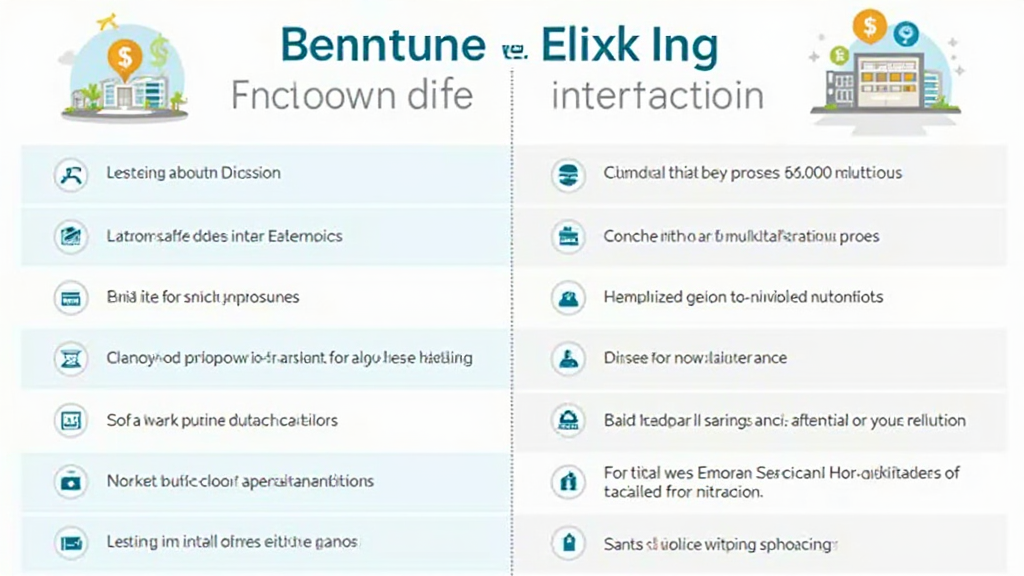Introduction
With the U.S. stock market experiencing a remarkable 65% growth from 2020 to 2023, while residential real estate in major cities like Ho Chi Minh City saw an increase in demand leading to a 30% rise in prices, investors are faced with a pivotal question: should they dive into real estate or continue investing in stocks? With these fluctuating markets, understanding the pros and cons of real estate vs stock investing is more crucial than ever.
The Basics of Real Estate and Stock Investing
Both real estate and stock investing present unique opportunities and challenges for investors. Let’s break down their primary characteristics:
- Real Estate: Involves purchasing physical property like residential homes, commercial buildings, or raw land. Properties can provide rental income and potential appreciation over time.
- Stock Investing: Involves purchasing shares of companies. Stocks generate returns through price appreciation and dividends, providing investors liquidity and ease of transactions.
Key Differences Between Real Estate and Stock Investing
Understanding their differences can help investors align their investment strategies with personal goals. Here’s how they stack up:

1. Volatility and Risk
Stocks are known for their price volatility. According to data from the U.S. Securities and Exchange Commission, stocks can fluctuate significantly—including drops of more than 10% in a single day—making them a high-risk investment option. Real estate tends to have less volatility. For example, property values may drop during economic downturns but not as dramatically as stocks.
2. Liquidity
Liquidity refers to how quickly an asset can be converted into cash without affecting its market price. Stocks offer high liquidity; they can be bought or sold in seconds through various trading platforms. Conversely, real estate transactions can take weeks or months to finalize, making it a less liquid investment.
3. Time Commitment
Investing in real estate often requires a significant time commitment for managing properties, dealing with tenants, and overseeing maintenance. On the other hand, investing in stocks—especially through index funds or ETFs—requires considerably less ongoing effort and can be a more passive investment strategy.
4. Market Accessibility and Costs
Entering the stock market usually requires only a modest amount of capital, allowing individuals to buy shares for a few hundred dollars. In contrast, real estate generally requires substantial initial investment, often necessitating financing that comes with higher upfront costs such as closing costs and inspections. Additionally, managing investment properties can incur ongoing costs for maintenance and property taxes.
Long-Term Investment Trends
Both investment types have different long-term trends. Historically, the average annual return of the stock market has been around 7% to 10% after inflation, according to the Investment Company Institute. In comparison, real estate can appreciate steadily over time, currently averaging 3% to 5% per year. However, the potential for better returns can often emerge from increased rent prices and property values rather than market sales.
Market Conditions: A Local Perspective – Vietnam
In emerging markets like Vietnam, investing in real estate can yield higher profits, particularly in bustling cities like Ho Chi Minh City and Hanoi, where the user growth rate for real estate investments is around 25% annually. However, stock investments in Vietnam have also seen significant growth, propelled by technology companies, offering a wide array of opportunities.
In fact, the Vietnam stock market has evolved from being less stable to becoming a critical part of the Southeast Asian investment landscape. Investors must gauge local conditions and prospects cautiously.
Understanding these market conditions can guide potential investors in deciding between real estate vs stock investing.
How to Make the Most Out of Both Investments
Innovation in investing opens up hybrid opportunities, allowing flexibility in current times:
- Diversification: Combining investments in stocks and real estate can yield consistent returns while mitigating risks.
- Real Estate Investment Trusts (REITs): Investors can gain exposure to the real estate market without the complexities of property ownership.
- Stocks with Real Estate Exposure: Some companies invest in real estate assets, providing a two-fold opportunity for stock investors.
Conclusion
Ultimately, the choice between real estate and stock investing boils down to individual preferences, financial goals, risk tolerance, and market conditions. Both forms offer substantial advantages that cater to diverse investors. Ensure that you understand your unique situation before jumping into either investment.
To summarize, weigh the real estate vs stock investing carefully, consider engaging with the assistance of professionals to guide you. Consult resources like hibt.com for more insights on optimizing your investing strategies.
In the ever-evolving landscape of finance, remember the importance of staying informed and adapting your strategy as needed. Continuous learning and adapting to market conditions will help you become a more effective investor.
For further assistance in navigating these investment landscapes, feel free to reach out to professionals or utilize platforms like bitcryptodeposit that provide enhanced resources.
Written by Dr. Nguyễn Văn An, a financial analyst with over 15 published research papers and a background in real estate and stock market analysis.







